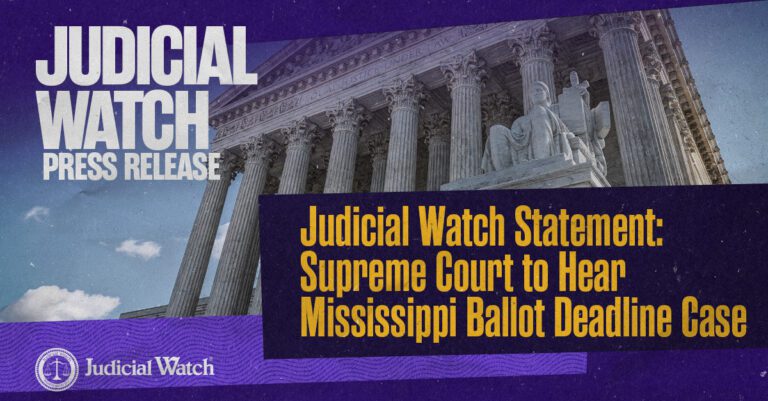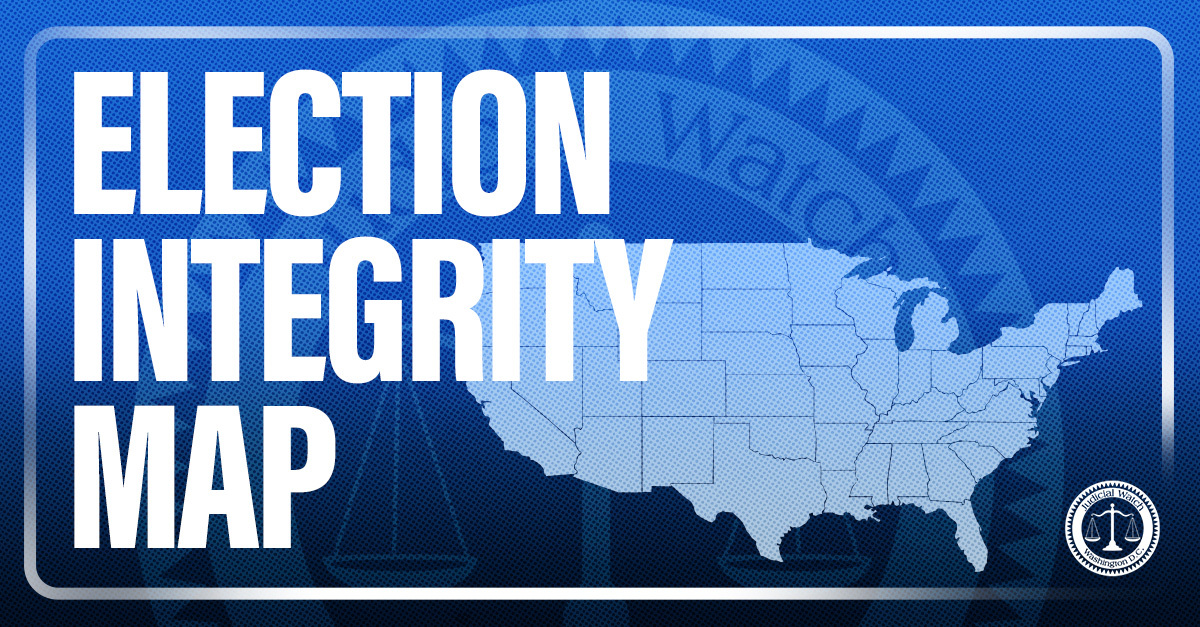
Judicial Watch Files for Preliminary Injunction to Halt Native Hawaiian-Only Separatist Election
(Washington, DC) – Judicial Watch announced today that it filed a Motion for a Preliminary Injunction to halt a native Hawaiian election in which voter registration was restricted both by race and by a strict adherence to specified political viewpoints. The motion was filed on behalf of the five Hawaiian residents and one Texas resident of Hawaiian descent who oppose the discriminatory voter registration requirements instituted under Act 195. The motion was filed on August 28, 2015, as part of a federal lawsuit in the United States District Court for the State of Hawaii (Keli’i Akina, et al. v. The State of Hawaii, et al. (No. 1:15-cv-00322)).
On August 13, 2015, Judicial Watch filed the lawsuit against the state of Hawaii, the Office of Hawaiian Affairs (OHA), the Native Hawaiian Roll Commission (NHRC), and other State officials alleging that the Hawaiian “self-governance” vote violates the U.S. Constitution and federal voting rights laws.
Hawaii State officials, through Act 195, which became law in 2011, have tried to create a list of “Native Hawaiians” who would be eligible to recommend amendments to the state constitution at a planned constitutional convention and to vote on issues concerning the sovereignty of the “Native Hawaiian people.” The act defines a “Native Hawaiian” as any person whom the government determines to be a direct descendant of the State’s aboriginal peoples.
On July 20, 2012, using taxpayer funds from the State’s Office of Hawaiian Affairs, the NHRC launched the Kana’iolowalu campaign, opening a registration process strictly confined to native Hawaiians who desire to vote for a new race-based sovereign government. The process, besides being racially discriminatory, excludes registrants who refuse to affirm all three of the following declarations:
- Declaration One. I affirm the unrelinquished sovereignty of the Native Hawaiian people, and my intent to participate in the process of self-governance.
- Declaration Two. I have a significant cultural, social or civic connection to the Native Hawaiian community.
- Declaration Three. I am a Native Hawaiian: a lineal descendant of the people who lived and exercised sovereignty in the Hawaiian islands prior to 1778, or a person who is eligible for the programs of the Hawaiian Homes Commission Act, 1920, or a direct lineal descendant of that person.
Judicial Watch represents citizens harmed by the discriminatory Hawaii election process. Keli’i Akina and Kealii Makekau are descendants of the Hawaiian aboriginal people, who cannot register to vote because they will not affirm that they favor Native Hawaiian sovereignty and self-governance. Joseph Kent and Yoshimasa Sean Mitsui are citizens and residents of the State of Hawaii, who are prevented from registering to vote in elections because of the race-based ancestry requirements of Act 195. Melissa Leina’ala Moniz and Pedro Kana’e Gapero are descendants of the aboriginal people of Hawaii and were registered to vote without their knowledge or consent.
In asking the Court to halt the election process, Judicial Watch argues that the racially exclusive campaign obviously violates the Fifteenth Amendment’s protection against voting restrictions based on race. The U.S. Supreme Court previously ruled against another Hawaii attempt to restrict voting based on race, noting that Hawaii’s “position rests . . . on the demeaning premise that citizens of a particular race are somehow more qualified than others to vote on certain matters. That reasoning attacks the central meaning of the Fifteenth Amendment.”
Judicial Watch argues that an injunction is warranted in light of the harm caused by the numerous violations of the Constitution and federal law:
If Defendants are allowed to proceed with the challenged activities under Act 195, a great and substantial harm will be done to the constitutional and statutory rights of Plaintiffs and of hundreds of thousands of other citizens of the State of Hawaii. The deprivations involved, moreover, concern such fundamental constitutional guarantees as the First Amendment rights to freedom of speech and freedom from compelled speech, the Fourteenth Amendment rights to the equal protection of the laws and to due process, the Fifteenth Amendment right to vote free from denial or abridgment on account of race, and the basic antidiscrimination provisions of the Voting Rights Act of 1965.
Judicial Watch previously filed a lawsuit in the U.S. District Court for the District of Hawaii on behalf of the plaintiffs.
“There is no doubt that Hawaii is abusing tax dollars on a separatist campaign that discriminates on the basis of race and viewpoint,” said Judicial Watch President Tom Fitton said. “Right now, U.S. citizens are being denied access to the right to vote explicitly because of their race and their points of view. This dangerous, divisive scheme can’t be halted soon enough by the courts.”
The Grassroot Institute of Hawaii, a Hawaii-based think tank, has been helping Judicial Watch to investigate Hawaii’s plan for a race-based election. Keli’i Akina, Ph.D., President of the Grassroot Institute and a plaintiff in the case said, “It is imperative to stop draining public funds on a racially discriminatory process that the majority of native Hawaiians have chosen not to endorse, especially while the needs of native Hawaiians for housing, jobs, education, and health go underfunded.”
Robert Popper, director of Judicial Watch’s Election Integrity Project, is Judicial Watch’s lead attorney on the lawsuit. Mr. Popper was formerly deputy chief of the Voting Section of the Civil Rights Division of the Justice Department.
Michael Lilly of the Honolulu law firm Ning, Lilly & Jones is serving as Judicial Watch’s local counsel for the plaintiffs.
In separate litigation, Judicial Watch forced the release of the actual enrollment list, which includes the names of Hawaiian residents placed there without their permission. The Obama administration took controversial executive action towards “the reestablishment of a government-to-government relationship with the Native Hawaiian community.”

















